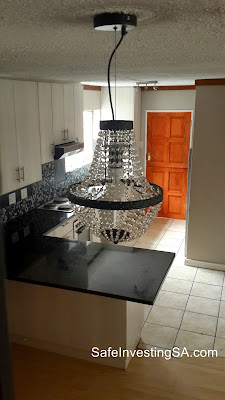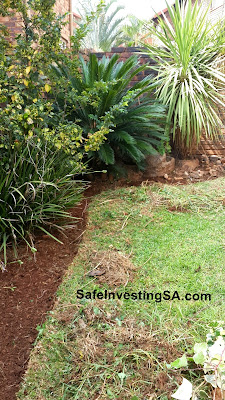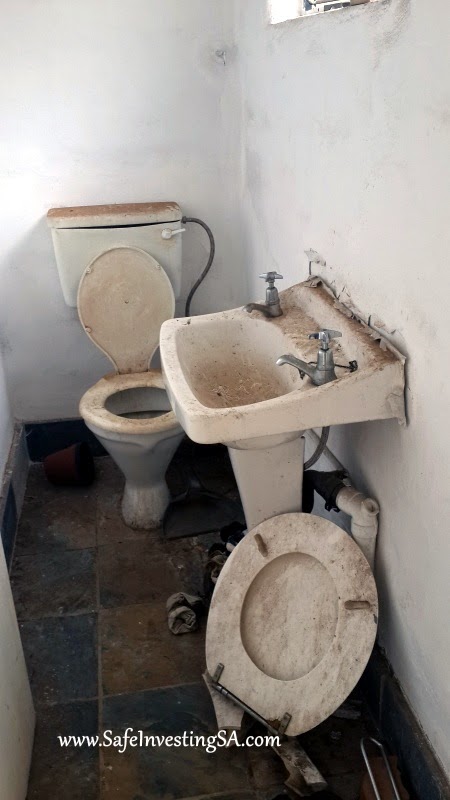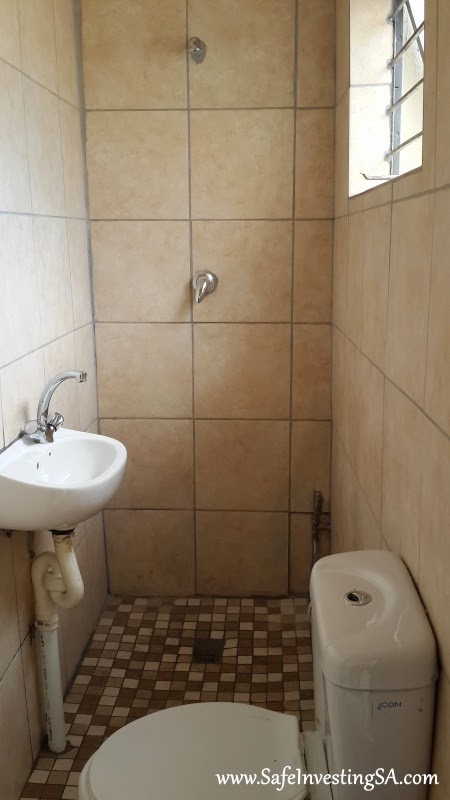The reader's email below is about buying property from a sheriff's auction to create wealth. All the best to you Mr S.
Starting in property investing...
Paying cash for a house...
Raising capital for a property investment...
Early retirement and property investing...
If you still have specific questions on raising funds for your investment property, feel free to leave a comment below this post. Now on the sheriff's auction questions you asked:
1. Would I be likely to get a good property at a cheaper price?
Your first question is on whether you will be likely to get the good property at a cheaper price when buying property from a sheriff's auction. The short answer is that, you can get a good property at below market rate prices anywhere. Buying a bargain property is possible but because of where we are in the economic cycle, those deals are not easy to spot. Searching for bargains is not easy, especially at this time of the economic cycle. Recession is the time where opportunities to get bargains are unlimited. There is also existing players in the sheriff's auction property space. You have to go there and compete with guys who are experienced and even determined to intimidate and scare you off. Everything worth fighting for is usually a bit scary. In all, you may get the good property at a cheaper price in and outside the auction.
You will need a bit of preparation for the auction. Your local sheriff should be able to provide you with the list of what they have available. The trick with the auctions is to determine the amount of money you are willing to part with and not be easily swayed from your target. Critical decisions are not taken at the auction, but before it. You have to know how much returns on investment (ROI) you are willing to settle for. You then do the maths and know what you can offer to get those returns. Going to the auction is only to get your predetermined ROI. You may start by doing a trial exercise by going through the sheriff list, picking a property, doing the maths, attending the auction and asking the questions to have an understanding of the whole process.
A number of variables will determine your bottom line. The property you are eyeing may be having debt for water and electricity, rates and taxes, home owners association fees, and other fees you need to pay. The property may also be home to a tenant who refuses to vacate it. And getting rid of the tenant may be a costly legal battle. That is more reduction to your ROI. If the property is vacant, it may be in a bad shape or even vandalised and in need of costly repairs. Naturally, any distressed property is likely to need repairs, and that should be catered for. Renovations can be quite expensive.
2. Do I need to purchase cash or will the sheriff's office wait for the bond approval to be processed by the bank?
You need to have a deposit. But be sure you can get it back if you are unable to secure a homeloan. It is more difficult to secure a loan for a repossessed property than properties in the open market. If the property has been vacant, it is usually in a state of neglect. It may actually be in a similar state even when occupied. You stand better chances of getting the financing from the bank that repossessed that particular property if it is already in the hands of the bank. If you can, arrange for financing before hand.
3. What would be the cons of buying from an auction?
Please refer to number 1 above. Other disadvantages are related to how the property looks. You are buying it "voetstoots", meaning that you get it as is. Some of the problem areas are not easy to spot. You have no grounds to put a conditional offer. As mentioned above, you will have to pay for outstanding levies, rates and taxes and other related costs before your property is transferred to your name. I also secure the place by changing all locks before letting it to new tenants. So the security measures are not unique to distressed properties. However, it becomes even more important for properties that have been vacant for a while. Apart from those costs you have to also pay the auctioneer and sheriff's commission when buying property from a sheriff's auction. The Sheriff’s commission is about 6% on the first R30 000 of the proceeds of the sale, and 3.5% on the balance thereof. The maximum commission payable is R 10,777 plus VAT with the minimum being R542 plus VAT. The electrical compliance certificate may attract an extra cost especially if the wiring is faulty. The seller of my latest acquisition just parted with about R50,000 to fix the old wiring.
Buying property from a sheriff's auction is becoming a broad topic. I will have to follow it with a summarised version post of the sheriff's auction conditions. The bottom line is that, you may not be getting a bargain if you have not done a thorough job of investigations and calculations. The area where the property is located remains an important factor.
Note:
It is so important to never let your dream die. This evening I have been thinking about a number of doors that closed shut in my face "BANG!!!". Just as I thought, "if only I can get 1, 2, 3 opportunity, I'd be OK". Somethings blocks it. But each time I miss out on an opportunity, I somehow get amazing energy to create another one for myself. Even this blog is the direct result of writing opportunities I missed on. I always wanted to interview the South African middle class to stir a debate on how we can better our lives. I sent proposals to publications on this in vain. Until one day I decided, "Flip, I'll do it by myself". Then this blog was born. I love what I am doing here. Thanks for reading, sharing and continuing to send me emails. There are plans to grow this platform to something really big. Keep watching the space. Thanks again for being part of my happy space.
Thanks for the amazing emails. I respond to each and every email I receive. I keep all emails anonymous when I respond to them through this platform. Feel free to make a follow up question or comment using the "Contact Us" button above.
AND If you find this post helpful, be so kind to share it on your Facebook wall or in other social networks using one of the buttons below.
 |
| Student accommodation closet |
I'd like to start by thanking you for your informative blog. I have learnt so much from it.Thanks S for your email. Well done on planning to pay your homeloan so quick. I have responded to similar questions on raising funds for the investment property in my previous three posts. If you haven't already, do check those posts at:
The reason I am writing is that I would like to start investing in property and I'd appreciate getting your advice.
I have a house that I purchased 3 years ago and I am halfway through paying off the bond. I use this as my home and I would like to purchase a second house to rent out. What I would like to know is should I wait until I pay off my house (which can take up to 3 years from now) or should I borrow the money I have paid so far for my house and buy a very cheap property.
Because I don't have much money, I have been considering buying from the sheriff's auction but I have the following concerns:
1. Would I be likely to get a good property at a cheaper price
2. Do I need to purchase cash or will the sheriff's office wait for the bond approval to be processed by the bank
3. What would be the cons of buying from an auction?
Thank you for taking the time to even read this and please can I ask that you keep me anonymous should you put this on your blog.
Regards,
S
Starting in property investing...
Paying cash for a house...
Raising capital for a property investment...
Early retirement and property investing...
If you still have specific questions on raising funds for your investment property, feel free to leave a comment below this post. Now on the sheriff's auction questions you asked:
1. Would I be likely to get a good property at a cheaper price?
Your first question is on whether you will be likely to get the good property at a cheaper price when buying property from a sheriff's auction. The short answer is that, you can get a good property at below market rate prices anywhere. Buying a bargain property is possible but because of where we are in the economic cycle, those deals are not easy to spot. Searching for bargains is not easy, especially at this time of the economic cycle. Recession is the time where opportunities to get bargains are unlimited. There is also existing players in the sheriff's auction property space. You have to go there and compete with guys who are experienced and even determined to intimidate and scare you off. Everything worth fighting for is usually a bit scary. In all, you may get the good property at a cheaper price in and outside the auction.
You will need a bit of preparation for the auction. Your local sheriff should be able to provide you with the list of what they have available. The trick with the auctions is to determine the amount of money you are willing to part with and not be easily swayed from your target. Critical decisions are not taken at the auction, but before it. You have to know how much returns on investment (ROI) you are willing to settle for. You then do the maths and know what you can offer to get those returns. Going to the auction is only to get your predetermined ROI. You may start by doing a trial exercise by going through the sheriff list, picking a property, doing the maths, attending the auction and asking the questions to have an understanding of the whole process.
A number of variables will determine your bottom line. The property you are eyeing may be having debt for water and electricity, rates and taxes, home owners association fees, and other fees you need to pay. The property may also be home to a tenant who refuses to vacate it. And getting rid of the tenant may be a costly legal battle. That is more reduction to your ROI. If the property is vacant, it may be in a bad shape or even vandalised and in need of costly repairs. Naturally, any distressed property is likely to need repairs, and that should be catered for. Renovations can be quite expensive.
2. Do I need to purchase cash or will the sheriff's office wait for the bond approval to be processed by the bank?
You need to have a deposit. But be sure you can get it back if you are unable to secure a homeloan. It is more difficult to secure a loan for a repossessed property than properties in the open market. If the property has been vacant, it is usually in a state of neglect. It may actually be in a similar state even when occupied. You stand better chances of getting the financing from the bank that repossessed that particular property if it is already in the hands of the bank. If you can, arrange for financing before hand.
3. What would be the cons of buying from an auction?
Please refer to number 1 above. Other disadvantages are related to how the property looks. You are buying it "voetstoots", meaning that you get it as is. Some of the problem areas are not easy to spot. You have no grounds to put a conditional offer. As mentioned above, you will have to pay for outstanding levies, rates and taxes and other related costs before your property is transferred to your name. I also secure the place by changing all locks before letting it to new tenants. So the security measures are not unique to distressed properties. However, it becomes even more important for properties that have been vacant for a while. Apart from those costs you have to also pay the auctioneer and sheriff's commission when buying property from a sheriff's auction. The Sheriff’s commission is about 6% on the first R30 000 of the proceeds of the sale, and 3.5% on the balance thereof. The maximum commission payable is R 10,777 plus VAT with the minimum being R542 plus VAT. The electrical compliance certificate may attract an extra cost especially if the wiring is faulty. The seller of my latest acquisition just parted with about R50,000 to fix the old wiring.
Buying property from a sheriff's auction is becoming a broad topic. I will have to follow it with a summarised version post of the sheriff's auction conditions. The bottom line is that, you may not be getting a bargain if you have not done a thorough job of investigations and calculations. The area where the property is located remains an important factor.
Note:
It is so important to never let your dream die. This evening I have been thinking about a number of doors that closed shut in my face "BANG!!!". Just as I thought, "if only I can get 1, 2, 3 opportunity, I'd be OK". Somethings blocks it. But each time I miss out on an opportunity, I somehow get amazing energy to create another one for myself. Even this blog is the direct result of writing opportunities I missed on. I always wanted to interview the South African middle class to stir a debate on how we can better our lives. I sent proposals to publications on this in vain. Until one day I decided, "Flip, I'll do it by myself". Then this blog was born. I love what I am doing here. Thanks for reading, sharing and continuing to send me emails. There are plans to grow this platform to something really big. Keep watching the space. Thanks again for being part of my happy space.
Thanks for the amazing emails. I respond to each and every email I receive. I keep all emails anonymous when I respond to them through this platform. Feel free to make a follow up question or comment using the "Contact Us" button above.
AND If you find this post helpful, be so kind to share it on your Facebook wall or in other social networks using one of the buttons below.

















